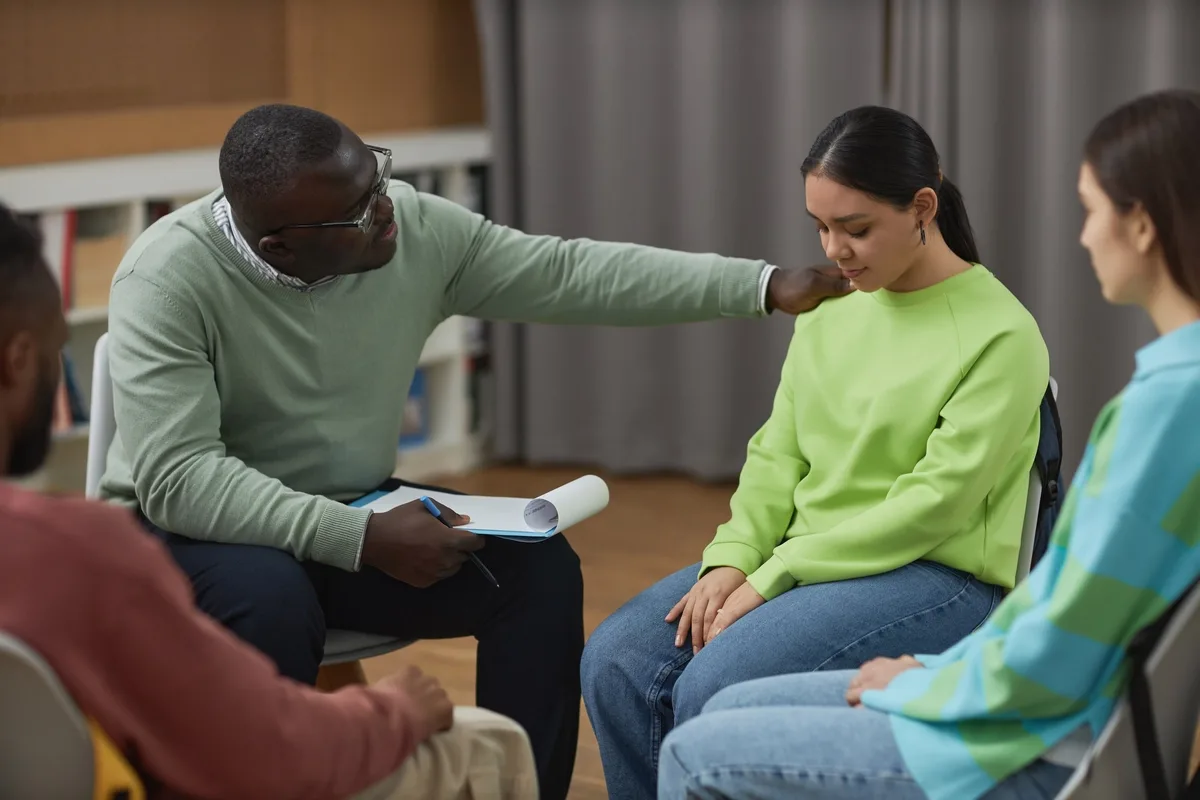24/7 Helpline:
(866) 899-221924/7 Helpline:
(866) 899-2219
Learn more about Dialectical Behavior Therapy centers in Greenwood

Other Categories
Other Insurance Options

Magellan

GEHA

Molina Healthcare

Optima

Sliding scale payment assistance

Magellan Health

Lucent

Covered California

Carleon

Group Health Incorporated

BlueShield

United Health Care

Sutter

UMR

Amerigroup

PHCS Network

AllWell

Regence

Health Choice

MHNNet Behavioral Health












